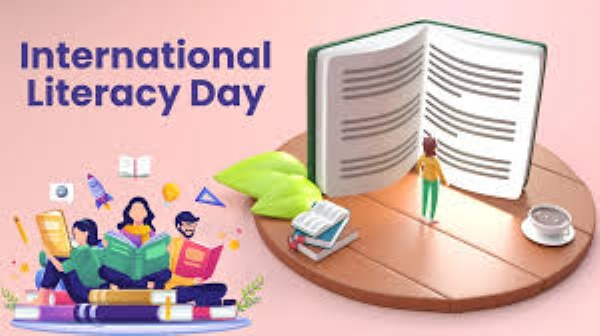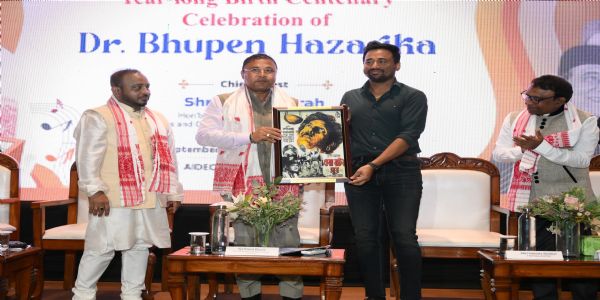
Lucknow,
08 Sept (HS): International Literacy Day
(ILD) is observed annually on September 8, reaffirming literacy as a
fundamental human right and reminding policymakers and the public of its
crucial role in promoting justice, peace, and equality. Since its first
observance in 1967, literacy has come to include broader ideas of empowerment,
rights, and inclusion. One important dimension is sexual and reproductive
health literacy, the ability to understand and communicate about sexuality
safely and responsibly. It is central to comprehensive education, enabling
especially women and girls to make informed choices, access health services,
and exercise their rights.
On
International Literacy Day (8th September), we’re spotlighting a vital but
often overlooked dimension of literacy - sexual and reproductive health. Beyond
traditional reading and writing, health literacy empowers especially women and
girls to make informed choices, access services, and exercise their rights. In
India, three trusted sources are breaking barriers and making this knowledge
accessible: SnehAI, an AI-powered chatbot offering safe, stigma-free
conversations; ASHA workers, the backbone of rural health systems; and digital
influencers like Dr. Cuterus and Leeza Mangaldas, sparking open discussions
online.
Here are three trusted sources of sexual and
reproductive health literacy in India.
An Overview:
1. SnehAI: Population Foundation of India launched ‘Main Kuch Bhi Kar
Sakti Hoon’ (MKBKSH) in 2014 as an entertainment-education initiative to
promote gender equality, women’s empowerment, and health-seeking behaviour. In
2019, under the same programme, it introduced SnehAI, a free chatbot on
Facebook Messenger. Modelled on Dr. Sneha, the lead character of the MKBKSH
series, offers verified information on sexual and reproductive health, online
safety, and other sensitive subjects.
The chatbot serves as a personalised,
non-judgmental companion for young people, clarifying doubts on a wide range of
topics, including virginity, contraception, puberty, mental health, consent,
gender-based violence, same-sex attraction, masturbation, grooming and
cyberbullying, among many other issues. Since its launch, SnehAI has engaged
1,36,000 active users, facilitated over 8.6 million conversations, and reached
more than 22 million people through online outreach, making it one of the most
effective chatbots of its kind. Future enhancements for SnehAI include the
integration of full voice capabilities to enable voice-based interactions,
making the platform more accessible and engaging for a wider audience.
2. ASHA workers: The Accredited Social Health Activist (ASHA)
programme was launched by the Ministry of Health and Family Welfare (MoHFW)
under India’s National Rural Health Mission (NRHM). The objective was to link
marginalised communities with the public healthcare system, with the aim of
having one ASHA in every village. Selected from within their own communities,
ASHAs act as trusted guides on maternal, child, and reproductive health. They
counsel women on safe deliveries, breastfeeding, family planning, and infection
prevention, while also mobilising communities for immunisation, sanitation, and
nutrition initiatives. In addition to awareness, they distribute essential
supplies such as ORS, IFA tablets, contraceptives, and delivery kits. Supported
by village health committees, Anganwadi workers, and regular training, ASHAs
play a vital role in helping rural households access essential health services.
Embedded in their communities, they remain the backbone of India’s rural
healthcare system.
3. Sexual Health & Wellness Influencers:
In the digital age, influencers play a significant role in raising awareness
about sexual health. Acknowledging the importance of open conversations, a
growing number of digital educators, from doctors to health advocates, are
actively shaping sexual and reproductive health literacy. Notable figures
include Dr. Tanaya Narendra (popularly known as Dr. Cuterus), Leeza Mangaldas,
Seema Anand, Karishma Swarup, and Pallavi Barnwal. They use platforms such as
Instagram, YouTube, and podcasts to simplify discussions on pleasure, consent,
menstruation, reproductive health, and non-normative sexuality, often
addressing audiences in regional languages. In India, Dr. Cuterus has been
recognised as Health Influencer of the Year, while Leeza Mangaldas has launched
a bilingual podcast and a wellness brand to reach wider audiences. Seema Anand,
meanwhile, is the author of 'The Arts of Seduction: The 21st Century Guide to
Having the Greatest Sex of Your Life'.
Hindusthan Samachar / Abhishek Awasthi






